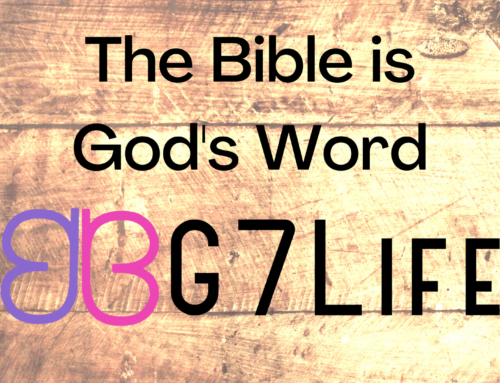This week we explore the far-reaching consequences of sin, delving into how it can choke our joy, strain our relationships, and distance us from God. We use vivid imagery and biblical references to illustrate these points, but also offer a message of hope. Through faith, repentance, and practical steps like prayer and forgiveness, we can untangle the thorny grip of sin and experience the healing embrace of God’s love.
The Thorns of Sin: How it Separates Us Emotionally
Sin, that ever-present shadow in our lives, can feel like a thorny vine wrapping itself tightly around our hearts. It squeezes the joy and peace out of our lives, leaving us feeling emotionally drained and empty. Romans 3:23, KJV, serves as a sobering reminder: “For all have sinned, and come short of the glory of God.” When we make choices that go against God’s will, a wave of guilt and shame can wash over us. These feelings can then morph into a constant undercurrent of anxiety and stress, making it difficult to relax and enjoy life.
Imagine that nagging feeling you get when you haven’t finished an important task. Now, magnify that by a hundred. That’s the kind of anxiety sin can breed – a persistent worry that gnaws at your peace of mind. Perhaps you lied to a friend and now dread their potential discovery. Maybe you indulged in a moment of gossip and the guilt weighs heavily on you. These situations, and countless others, can trigger an emotional rollercoaster, leaving us feeling on edge and unable to focus on the present.
Sin’s emotional grip doesn’t stop there. It often spills over into anger and resentment, poisoning our relationships with loved ones. For instance, a critical comment from a family member, fueled by past hurts, can quickly escalate into a heated argument. Or perhaps a broken promise leaves you feeling frustrated and distrustful of a friend. These conflicts create distance and make it difficult to connect with the people who matter most.
The story of Cain and Abel in Genesis 4:3-8 perfectly illustrates this point. Cain’s offering was rejected by God, while Abel’s was accepted. This sparked anger and resentment in Cain’s heart, ultimately leading to him murdering his own brother.
However, amidst the tangled thorns of sin, there is hope. God’s love and forgiveness are a constant presence, offering solace and a path towards emotional healing. As Philippians 4:6-7, KJV, beautifully reminds us: “Be careful for nothing; but in every thing by prayer and supplication with thanksgiving let your requests be made known unto God. And the peace of God, which passeth all understanding, shall keep your hearts and minds through Christ Jesus.” Through prayer, we can connect with God’s calming presence. By confessing our sins and seeking His forgiveness, we can experience a release from the emotional burdens that have been weighing us down.
The Broken Bridge: How Sin Separates Us From Others
Sin acts like a wrecking crew on our relationships, building a gaping chasm between us and the people we love. When we make choices that defy God’s will, it can erode the trust that forms the foundation of strong connections. Proverbs 13:21, KJV, rings true: “Evil pursueth sinners: but to the righteous good shall be recompensed.” Living in sin invites conflict and division, leaving a trail of broken promises, unresolved arguments, and a lingering sense of hurt.
Imagine this: you break a cherished promise to your spouse, forgetting an important anniversary dinner. The disappointment and anger in their eyes create a distance that feels insurmountable. Or perhaps a white lie told to a friend snowballs into a web of deceit, shattering their trust and making them question everything you’ve ever said. These scenarios, and countless others, illustrate how sin can poison the well of our relationships.
The damage isn’t always immediate or dramatic. Sometimes, sin creeps in subtly, like a slow drip eroding the foundation of a bridge. Constant negativity, fueled by envy or jealousy, can push loved ones away. Perhaps you constantly criticize a co-worker’s work, creating tension and resentment within the team. Or maybe a family member struggles with addiction, leading to broken promises and a cycle of disappointment. These seemingly minor transgressions, when left unchecked, can accumulate, creating a chasm that feels impossible to cross.
The story of King David and Bathsheba in 2 Samuel 11-12 is a stark reminder of the devastating consequences of sin on relationships. David’s adultery with Bathsheba not only broke God’s commandments but also shattered his own family. It led to the death of Bathsheba’s husband, a rift between David and his children, and a wave of violence that plagued his kingdom.
However, God desires strong, loving relationships for us. Ephesians 4:2-3, KJV, outlines the path towards healing: “with all lowliness and meekness, with longsuffering, forbearing one another in love; Endeavouring to keep the unity of the Spirit in the bond of peace.” By seeking forgiveness and taking responsibility for our actions, we can begin to rebuild trust. Open communication, where we honestly express our feelings and actively listen to the other person, is crucial in this process. Just as a bridge can be repaired, so too can our relationships be restored with genuine remorse, effort, and God’s grace.
The Veiled Face: How Sin Separates Us From God
Sin’s most profound consequence might be the invisible wall it erects between us and God. Isaiah 59:2, KJV, paints a vivid picture of this separation: “But your iniquities have separated between you and your God, and your sins have hid his face from you, that he will not hear.” When we choose sin, it’s like turning our backs on God’s love and light, leaving us shrouded in a veil of spiritual darkness.
Imagine this: you’re standing in a vast, sun-drenched field, basking in the warmth of God’s love and grace. But then, you make a conscious decision to disobey Him. As you take that step away from His light, a thick fog rolls in, obscuring the sun and leaving you feeling isolated and alone. This is the essence of how sin separates us from God. We lose that sense of connection, that feeling of being heard and loved.
The effects of this separation can manifest in various ways. Perhaps you used to feel a deep sense of peace during prayer, but now your mind races and you struggle to focus. Or maybe the joy you once experienced in worshipping God has been replaced by a feeling of emptiness. These are all signs that the veil of sin is hindering your relationship with God.
The story of Adam and Eve in Genesis 3 perfectly illustrates this concept. When they disobeyed God and ate the forbidden fruit, they were cast out of the Garden of Eden, a place of perfect communion with God. Shame and fear replaced the innocence and closeness they once shared with their Creator.
However, God’s love for us is unwavering, a constant beacon that pierces even the thickest veil of sin. Romans 5:8, KJV, declares this truth beautifully: “But God commendeth his love toward us, in that, while we were yet sinners, Christ died for us.” Jesus Christ’s sacrifice on the cross is the bridge that allows us to cross back over the chasm created by sin. Through faith, repentance, and acceptance of His forgiveness, we can tear down the veil and re-establish a loving connection with God.
Finding Hope on the Other Side: Steps Toward Healing and Wholeness
If you’re carrying the burden of sin, you’re not alone. Millions throughout history have grappled with the same struggle. But remember, there is hope! Through prayer, repentance, and faith in Jesus Christ, you can experience healing, forgiveness, and a restored relationship with God. Don’t hesitate to seek guidance from a trusted spiritual advisor or pastor. God’s love is a constant presence, and He longs to help you on your journey towards a life free from sin’s separation. Here are some practical steps you can take to begin untangling the web of sin and experience the joy of a renewed connection with God:
- Embrace the Power of Prayer: Prayer is a powerful tool for connecting with God and seeking His guidance. It’s a two-way conversation, where you can express your burdens, confess your sins, and ask for strength. Imagine pouring out your heart to a loving parent who wants nothing more than your well-being. That’s the essence of prayer. Spend time in quiet reflection, talking to God honestly and openly. You can find solace in specific prayers from the Bible, or simply speak from your heart.
- Immerse Yourself in God’s Word: The Bible is God’s love letter to humanity, filled with wisdom, instruction, and inspiration for living a life that pleases Him. Reading scripture allows you to understand God’s character, His will for your life, and the path towards forgiveness. Start with short passages that resonate with you, perhaps the Psalms for comfort or the Gospels for guidance. As you delve deeper, the Bible will become a source of strength and encouragement on your journey.
- Find a Faith-Based Community: Surround yourself with people who will support you in your walk with God. Look for a bibleicly-based church or faith-based group where you can connect with others who share your beliefs. Being part of a supportive community allows you to share your struggles, celebrate your victories, and learn from the experiences of others. This sense of belonging can be a powerful source of strength and accountability as you navigate your journey away from sin.
- Confess Your Sins and Seek Forgiveness: The Bible assures us in 1 John 1:9, KJV, “If we confess our sins, he is faithful and just to forgive us our sins, and to cleanse us from all unrighteousness.” Confession is the act of acknowledging your wrongdoing to God and seeking His forgiveness. It’s a liberating act that allows you to release the burden of guilt and shame. Don’t be afraid to be specific and honest in your confession. Remember, God already knows your heart, but confession allows you to begin the healing process.
- Embrace Forgiveness: Forgiveness can be challenging, especially when someone has deeply hurt you. However, holding onto resentment only hurts you in the long run. Forgiveness is not about condoning the other person’s actions; it’s about releasing yourself from the emotional prison of anger and bitterness. Imagine a heavy weight you’ve been carrying around – forgiveness allows you to set that weight down and move forward with a lighter heart. The Bible tells us in Matthew 6:14-15, KJV, “For if ye forgive men their trespasses, your heavenly Father will also forgive you: But if ye forgive not men their trespasses, neither will your Father forgive your trespasses.” By choosing to forgive, you not only free yourself but also honor God’s will.
These steps are a starting point on your journey towards healing and wholeness. Remember, it’s a process, not a destination. There will be setbacks and stumbles along the way, but with faith, perseverance, and God’s grace, you can overcome the hold sin has on your life and experience the fullness of His love.


